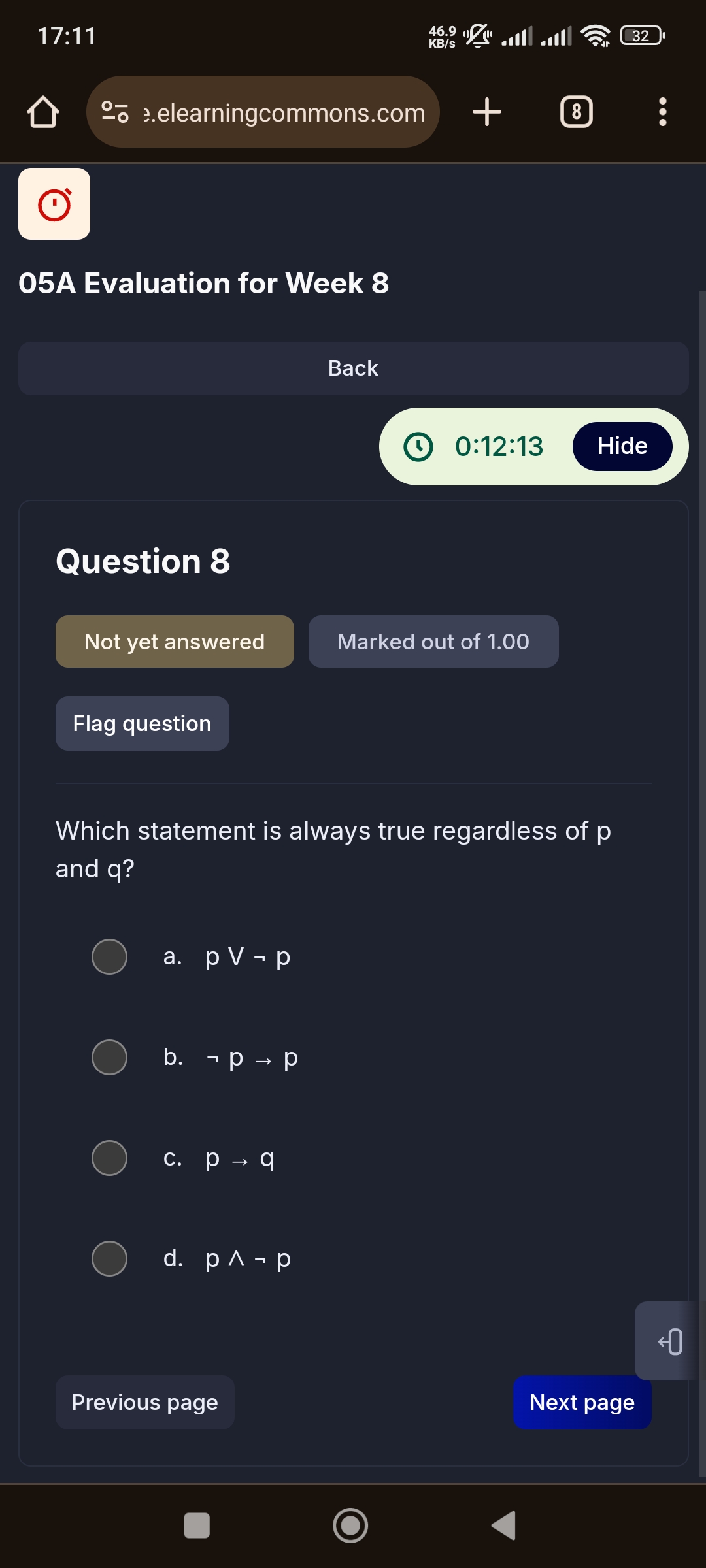Which statement is always true regardless of p and q?

Understand the Problem
The question is asking which logical statement is always true regardless of the truth values of variables p and q. It presents four options related to propositional logic.
Answer
The logical statement that is always true regardless of the values of $p$ and $q$ is $p \lor \neg p$.
Answer for screen readers
The answer is $p \lor \neg p$.
Steps to Solve
-
Identify the Statements List the logical statements provided in the question:
- a. $p \lor \neg p$
- b. $\neg p \to p$
- c. $p \to q$
- d. $p \land \neg p$
-
Evaluate Each Statement Determine the truth value of each statement regardless of the truth values of $p$ and $q$.
-
Analyze Statement a: $p \lor \neg p$ This is an example of the Law of Excluded Middle. It states that either $p$ is true or $\neg p$ (not $p$) is true.
- Truth Table:
$p$ $\neg p$ $p \lor \neg p$ T F T F T T - Conclusion: Always true.
- Truth Table:
-
Analyze Statement b: $\neg p \to p$ This represents a conditional statement. It's true unless $\neg p$ is true and $p$ is false.
- Truth Table:
$p$ $\neg p$ $\neg p \to p$ T F T F T F - Conclusion: Not always true.
- Truth Table:
-
Analyze Statement c: $p \to q$ This is also a conditional statement. It can be false if $p$ is true and $q$ is false.
- Truth Table:
$p$ $q$ $p \to q$ T T T T F F F T T F F T - Conclusion: Not always true.
- Truth Table:
-
Analyze Statement d: $p \land \neg p$ This is a contradiction because $p$ cannot be both true and false at the same time.
- Truth Table:
$p$ $\neg p$ $p \land \neg p$ T F F F T F - Conclusion: Always false.
- Truth Table:
-
Final Conclusion The statement that is always true regardless of the truth values of $p$ and $q$ is option a: $p \lor \neg p$.
The answer is $p \lor \neg p$.
More Information
The statement $p \lor \neg p$ illustrates the principle of the Law of Excluded Middle, a foundational concept in classical logic stating that a proposition must either be true or false. Therefore, it is always true.
Tips
- Confusing the truth value of conditional statements, especially $\neg p \to p$, with that of disjunctions.
- Misidentifying contradictions or tautologies without constructing a truth table.
AI-generated content may contain errors. Please verify critical information